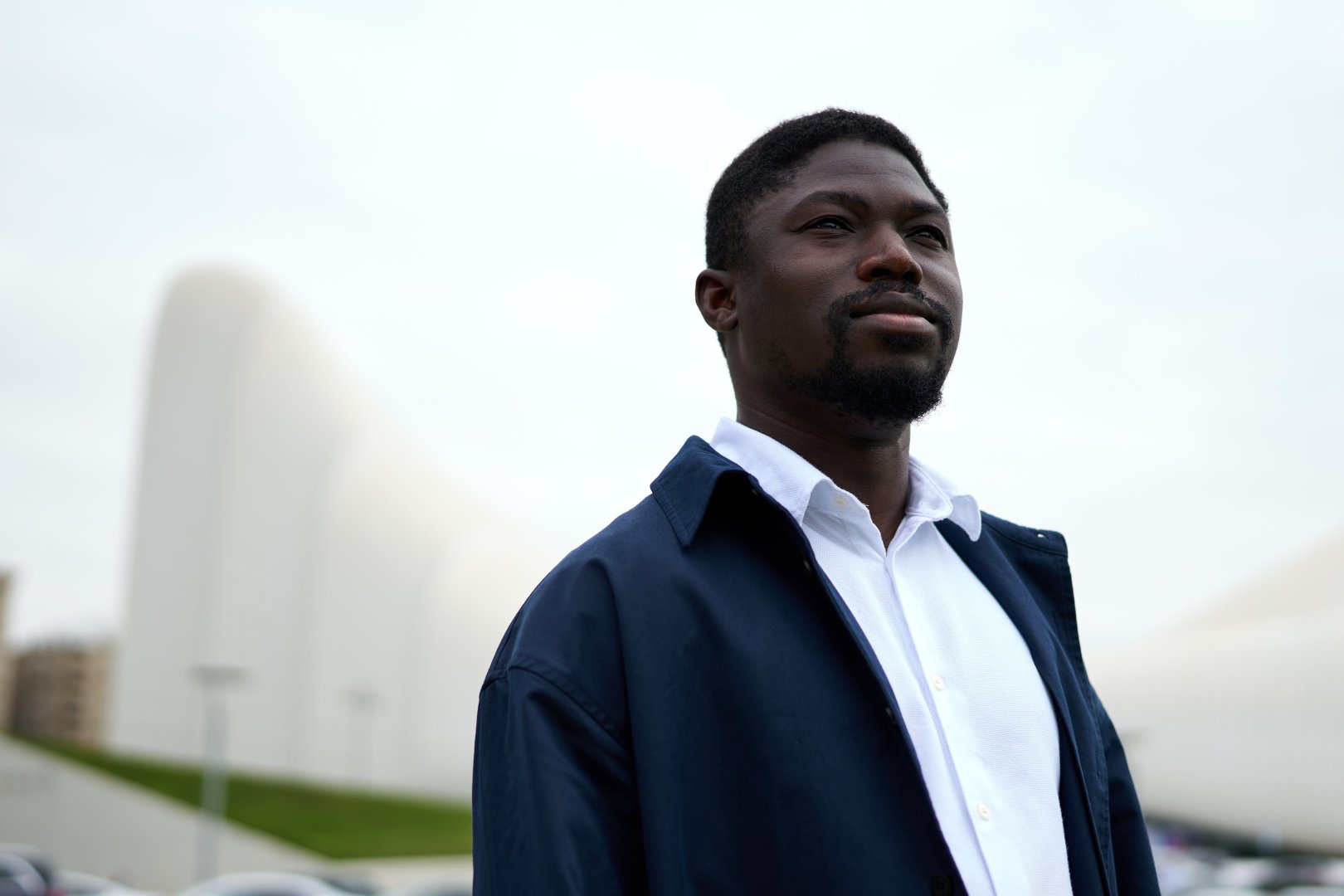Since its inception in 2018 with ride-hailing solutions, Dubai based Yango Group has rapidly emerged as a global digital ecosystem including mobility, e-commerce, food delivery, fintech, entertainment, and more, across 30 countries in the Middle East, South Asia, Latin America, Africa and Europe. It focuses on transforming global technologies into everyday services by adapting cutting-edge solutions for each unique market.
In a special interview with Trend, Adeniyi Adebayo, Chief Business Officer at Yango Group, and Mushvig Hasanov, Country Manager at Yango Azerbaijan, shared insights into Yango’s impressive journey, its rapid expansion across emerging markets, and the company’s forward-looking vision including Azerbaijani market.
Hyperlocality as one of the business development pillars
Adebayo explained that achieving scale in any business requires a strong foundation, much like building a tall structure: “The deeper the foundation, the more stories you can build. For Yango Group, this rests on four key elements: capital, technology, operations and local needs”.
Unlike many big tech companies that prioritized developed markets, Yango Group deliberately chose a different path. Seven years ago, the company committed to building in emerging markets, betting on their exponential growth potential. When Yango Ride entered Côte d’Ivoire in 2018, internet penetration was just 18%, smartphones cost roughly $1,000, and mobile internet data was prohibitively expensive. Yet, Yango saw what others missed: the rapid spread of Facebook and WhatsApp revealed pent-up demand for digitalisation, while falling device and mobile data costs would soon open the floodgates to more e-services. Today, smartphone penetration has risen to 70% and its cost has dropped fivefold, indeed opening up the market for explosive and rapid growth of digital platforms.
This philosophy of finding signals in hyperlocality has shaped Yango’s strategy and approach to market development. The company realised that ride-hailing is just one of the touchpoints in people's daily lives. “The future is not in isolated services, the real opportunity lies in building a connected ecosystem — products that work together to make life more convenient and efficient, designed and localized for each market”. The results validate this thesis. Today, Yango operates in over 30 countries, enabling more than 2 million people to earn income through its platform, and serving over 50 million monthly users.
While many multinational companies struggle between offering a uniform international product or adapting locally, Yango prioritizes serving people where they are today, rather than expecting users to adapt to a global template. For instance, in Lima, Peru, where city zones form “mini cities” due to social activity patterns, Yango designed mini zones within its app, allowing partner drivers to operate only within their preferred areas.
Another example is Pakistan, where Yango introduced a rickshaw tariff tapping into a cultural phenomenon deeply embedded in daily life. Rickshaws offer an affordable and flexible transport option, especially in the country’s busy urban areas. Yango also partnered with local artists to craft distinctive branding for the service, featuring vibrant artwork that reflects the community’s cultural essence. The goal was not only to promote this option but also to honor a deeply rooted tradition while making it easily accessible to users through the app.This approach embodies a broader philosophy: technology and products must adapt to users’ lives, not vice versa.
Hyperlocality then isn't just about localization, it’s Yango’s way of turning global scale to local trust. “By embedding into communities, respecting local context, and creating services that feel like “our own” in every market, our goal is to build foundations for enriching city living across the world”, says Adebayo.
He explained that Yango views its operations as part of broader “city services” — how people move, pay, eat, and deliver in urban environments. The company actively brings together restaurants, taxi companies and transportation providers, delivery services, digital content providers, and more, helping them distribute through its platform. This inclusive philosophy makes partnerships fundamental to Yango Group’s DNA.
Partnership as the bedrock of growth
“The company’s primary partnership is with the countries and cities where it operates, committing capital, innovation, and products to help digitize urban services and improve lives” continues Adebayo. This foundational partnership extends to governments and citizens alike, ensuring services reflect local needs.
Yango is open to integrating its solutions directly into city infrastructure. In Lima, Bogotá and several other markets, Yango has partnered with local providers to install live bus tags, allowing residents to see in real time where buses are and when they will arrive. Since buses remain the backbone of urban transport in these cities, especially during rush hours, this simple integration has brought enormous convenience. Similar projects are under discussion in Baku and other cities.
Equally critical is Yango’s mapping and navigation infrastructure. Far from being an internal tool, Yango Maps is now widely used by partner taxi companies and integrated into city systems. By investing in the continuous local update of maps, traffic flows, and incident reporting, Yango not only helps drivers respond faster to road conditions but also provides cities with better visibility on how people move.
$100 million investments and forward-looking vision for Azerbaijani market
Yango Group has invested $100 million into the Azerbaijani market, underscoring its long-term commitment to the country’s digital transformation.Mushvig Hasanov, Country Manager at Yango Azerbaijan, highlighted the company’s rapid progress since its entry nearly three years ago: “We began with Yango Ride, and today Yango has grown into a super-app that streamlines everyday tasks. From ride-hailing to restaurant and grocery delivery, logistics, ‘Navigator’ for real-time traffic routing, and ‘Transport’ for public transit planning—everything is now available in one familiar app.”
This investment reinforces Yango’s role as both a technology partner and urban services enabler, bringing global innovation while tailoring solutions to Azerbaijan’s local needs.






